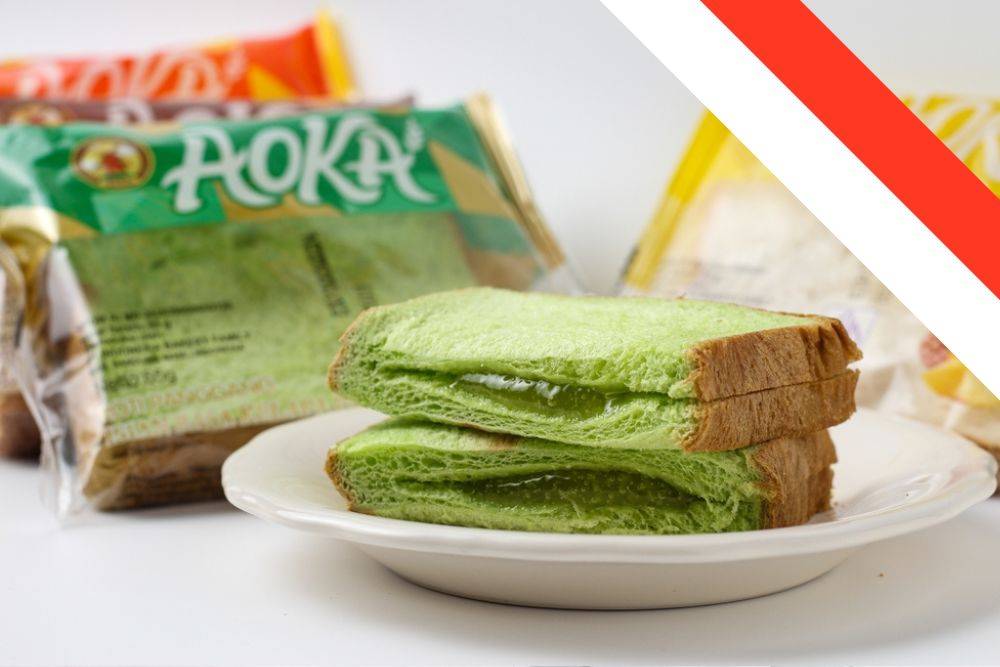The controversy over Aoka bread has finally been concluded. The Food and Drug Administration (BPOM) has confirmed that Aoka bread produced by PT Abadi Rasa Food is safe for consumption.
Sample testing conducted by BPOM showed that Aoka bread does not contain sodium dehydroacetate, as has been rumoured.
Chronology of the Aoka Bread Controversy
In mid-July 2024, Aoka Bread came into the spotlight after allegations surfaced that the product contained sodium dehydrogenate, a preservative commonly found in cosmetics. This allegation was based on a laboratory test report that was said to have come from PT SGS Indonesia. However, PT SGS Indonesia stated that the report did not come from them.
Responding to these allegations, PT Indonesia Bakery Family (PT IBF) immediately issued an official statement denying the presence of sodium dehydroacetate in Aoka bread products. PT IBF’s Head of Legal, Kemas Ahmad Yani, emphasised that Aoka bread has passed the BPOM test and uses safe and quality ingredients. PT IBF also stated that their products do not have an expiry date of six months as reported.
Public and Merchants’ Reactions
Although PT IBF has provided clarification, the uproar in the community did not immediately subside. Member of Commission IX of the House of Representatives, Edy Wuryanto, urged BPOM to immediately provide an official explanation so that the public is not confused and businesses are not harmed. The controversy has also had a direct impact on the sale of Aoka bread in the market. Aisyiah, a grocer in Mampang Prapatan, South Jakarta, has seen a drastic drop in sales of Aoka bread. Another vendor, Sunarsih, also recognised that Aoka bread was popular due to its affordable price. However, the issue of harmful preservatives has made some customers hesitant to buy.
Clarification from BPOM
The inspection of the Aoka bread production facility on 1 July 2024 showed that no sodium dehydroacetate was found in the production facility. However, people are still wondering why Aoka bread products can last up to 3 months without sodium dehydroacetate. BPOM’s Acting Deputy for Processed Food Supervision, Ema Setyawati, explained that the shelf life of bread can last up to 3 months because food preservation can be done by adding preservatives and packaging methods.
Health Details on Preservatives in Aoka Bread
BPOM’s findings showed that the food additives (BTP) used are calcium propionate, sorbic acid, and sodium diacetate. The three preservatives have received special authorisation from BPOM and safety studies have been conducted. The rules regarding food additives to preserve food are regulated in BPOM Regulation No. 11/2019 on Food Additives.
Ema explained that the addition of preservatives is one of the food preservation methods that can increase or extend shelf life. ‘As long as it has an expiry date that is in accordance with what is registered, for example, three months, it can be ensured that during those three months, there will be no change in food safety and food quality, so it is allowed,’ said Ema. Apart from preservatives, food preservation can also be done through preservation technology, such as sterilisation and pasteurisation.
According to BPOM, sterilisation is the process of killing microbes in packaged products. Meanwhile, pasteurisation is a heat treatment at a lower temperature than sterilised milk and is usually done below the boiling point of water.
BPOM Explanation on Sodium Dehydroacetate
On the same occasion, BPOM also dismissed the narrative circulating that Aoka products contain sodium dehydroacetate. ‘No, Aoka does not use sodium dehydroacetate,’ said Ema. She said that Aoka bread contains another preservative, sodium diacetate, which is different from sodium dehydroacetate. In addition, this product also contains other preservatives such as calcium propionate and sorbic acid.
If a product uses more than one preservative, there is a proportion or ratio. If the ratio is summed up, it cannot be more than one. Thus, BPOM ensures that Aoka bread on the market is safe for public consumption even though the product can last up to 3 months.
Consumer Actions and Expectations
YLKI suggests that BPOM be more proactive in monitoring the circulation of food products and provide quick responses to issues that arise in the community. BPOM’s openness to reviewing food safety standards is essential to improving consumer protection. The public is encouraged to always check food labels. They should also ensure that the products they consume have a distribution permit from BPOM. This is important to prevent the consumption of harmful ingredients that can damage health.
Health Risks From Sodium Dehydroacetate
Sodium dehydroacetate is used as a food preservative. Though it’s considered safe, some are convinced it has potentially dangerous health effects.
Have a pressing question for a doctor? Medical Channel Asia has launched a community forum page where you can get questions answered by a medical specialist. Visit the community forum here.

